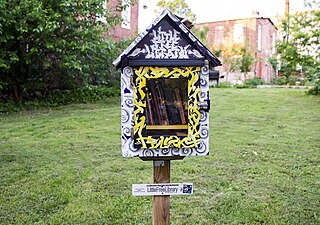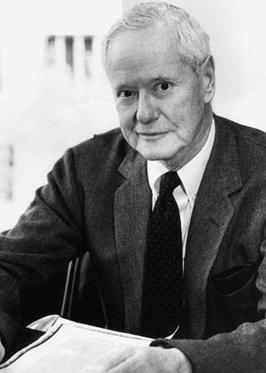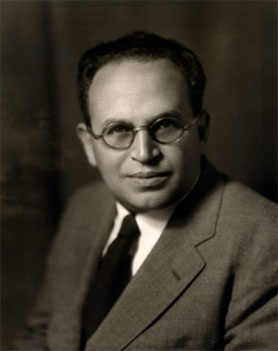
The sociology of knowledge is the study of the relationship between human thought and the social context within which it arises and the effects that prevailing ideas have on societies. It is not a specialized area of sociology. Instead, it deals with broad fundamental questions about the extent and limits of social influences on individuals' lives and the social-cultural basis of our knowledge about the world. The sociology of knowledge has a subclass and a compliment. Its subclass is Sociology of scientific knowledge. Its complement is the sociology of ignorance.

Robert King Merton was an American sociologist who is considered a founding father of modern sociology, and a major contributor to the subfield of criminology. He served as the 47th president of the American Sociological Association. He spent most of his career teaching at Columbia University, where he attained the rank of University Professor. In 1994 he was awarded the National Medal of Science for his contributions to the field and for having founded the sociology of science.
Social theories are analytical frameworks, or paradigms, that are used to study and interpret social phenomena. A tool used by social scientists, social theories relate to historical debates over the validity and reliability of different methodologies, the primacy of either structure or agency, as well as the relationship between contingency and necessity. Social theory in an informal nature, or authorship based outside of academic social and political science, may be referred to as "social criticism" or "social commentary", or "cultural criticism" and may be associated both with formal cultural and literary scholarship, as well as other non-academic or journalistic forms of writing.

Structural functionalism, or simply functionalism, is "a framework for building theory that sees society as a complex system whose parts work together to promote solidarity and stability".

Paul Felix Lazarsfeld was an Austrian-American sociologist. The founder of Columbia University's Bureau of Applied Social Research, he exerted influence over the techniques and the organization of social research. "It is not so much that he was an American sociologist," one colleague said of him after his death, "as it was that he determined what American sociology would be." Lazarsfeld said that his goal was "to produce Paul Lazarsfelds". The two main accomplishments he is associated with can be analyzed within two lenses of analysis: research institutes, methodology, as well as his research content itself. He was a founding figure in 20th-century empirical sociology.
Role theory is a concept in sociology and in social psychology that considers most of everyday activity to be the acting-out of socially defined categories. Each role is a set of rights, duties, expectations, norms, and behaviors that a person has to face and fulfill. The model is based on the observation that people behave in a predictable way, and that an individual's behavior is context specific, based on social position and other factors. The theatre is a metaphor often used to describe role theory.

In sociology, social complexity is a conceptual framework used in the analysis of society. In the sciences, contemporary definitions of complexity are found in systems theory, wherein the phenomenon being studied has many parts and many possible arrangements of the parts; simultaneously, what is complex and what is simple are relative and change in time.
A social relation is the fundamental unit of analysis within the social sciences, and describes any voluntary or involuntary interpersonal relationship between two or more individuals within and/or between groups. The group can be a language or kinship group, a social institution or organization, an economic class, a nation, or gender. Social relations are derived from human behavioral ecology, and, as an aggregate, form a coherent social structure whose constituent parts are best understood relative to each other and to the social ecosystem as a whole.
Piotr Sztompka is a Polish sociologist known for his work on the theory of social trust. He is professor of sociology at the Jagiellonian University in Kraków, Poland, and has also frequently served as visiting professor at the University of California, Los Angeles, and at Columbia University in New York City.

The International Sociological Association (ISA) is a non-profit organization dedicated to scientific purposes in the field of sociology and social sciences. It is an international sociological body, gathering both individuals and national sociological organizations. The ISA was founded in 1949 under UNESCO and it has about 4,500 individual and 45 collective members, hailing from 167 countries. Its sole purpose is to "represent sociologists everywhere, regardless of their school of thought, scientific approaches or ideological opinion" and its objective is to "advance sociological knowledge throughout the world". Along with the Institut International de Sociologie (IIS), it is seen as a world-leading international sociological organization.

A sociological theory is a supposition that intends to consider, analyze, and/or explain objects of social reality from a sociological perspective, drawing connections between individual concepts in order to organize and substantiate sociological knowledge. Hence, such knowledge is composed of complex theoretical frameworks and methodology.

In sociology and criminology, strain theory states that social structures within society may pressure citizens to commit crime. Following on the work of Émile Durkheim, strain theories have been advanced by Robert King Merton (1938), Albert K. Cohen (1955), Richard Cloward, Lloyd Ohlin (1960), Neil Smelser (1963), Robert Agnew (1992), Steven Messner, Richard Rosenfeld (1994) and Jie Zhang (2012).

Value-added theory is a sociological theory, first proposed by Neil Smelser in 1962, which posits that certain conditions are needed for the development of a social movement.
Middle-range theory, developed by Robert K. Merton, is an approach to sociological theorizing aimed at integrating theory and empirical research. It is currently the de facto dominant approach to sociological theory construction, especially in the United States.
The Merton thesis is an argument about the nature of early experimental science proposed by Robert K. Merton. Similar to Max Weber's famous claim on the link between Protestant work ethic and the capitalist economy, Merton argued for a similar positive correlation between the rise of Protestant Pietism and early experimental science. The Merton thesis has resulted in continuous debates.
In sociology of science, obliteration by incorporation (OBI) occurs when at some stage in the development of a science, certain ideas become so universally accepted and commonly used that their contributors are no longer cited. Eventually, its source and creator are forgotten ("obliterated") as the concept enters common knowledge. Obliteration occurs when "the sources of an idea, finding or concept, become obliterated by incorporation in canonical knowledge, so that only a few are still aware of their parentage".

Manifest and latent functions are social scientific concepts created by anthropologist, Bronislaw Malinowski in 1922 while studying the Trobriand Islanders in the Western Pacific. It was later modified for sociology by Robert K. Merton. Merton appeared interested in sharpening the conceptual tools to be employed in a functional analysis.
In science, priority is the credit given to the individual or group of individuals who first made the discovery or propose the theory. Fame and honours usually go to the first person or group to publish a new finding, even if several researchers arrived at the same conclusion independently and at the same time. Thus between two or more independent discoverers, the first to publish is the legitimate winner. Hence, the tradition is often referred to as the priority rule, the procedure of which is nicely summed up in a phrase "publish or perish", because there are no second prizes. In a way, the race to be first inspires risk-taking that can lead to scientific breakthroughs which is beneficial to the society. On the other hand, it can create unhealthy competition and incentives to publish low-quality findings, which can lead to an unreliable published literature and harm scientific progress.
The concept of multiple discovery is the hypothesis that most scientific discoveries and inventions are made independently and more or less simultaneously by multiple scientists and inventors. The concept of multiple discovery opposes a traditional view—the "heroic theory" of invention and discovery. Multiple discovery is analogous to convergent evolution in biological evolution.

Sociology is a social science that focuses on society, human social behavior, patterns of social relationships, social interaction, and aspects of culture associated with everyday life. It uses various methods of empirical investigation and critical analysis to develop a body of knowledge about social order and social change. While some sociologists conduct research that may be applied directly to social policy and welfare, others focus primarily on refining the theoretical understanding of social processes and phenomenological method. Subject matter can range from micro-level analyses of society to macro-level analyses.







